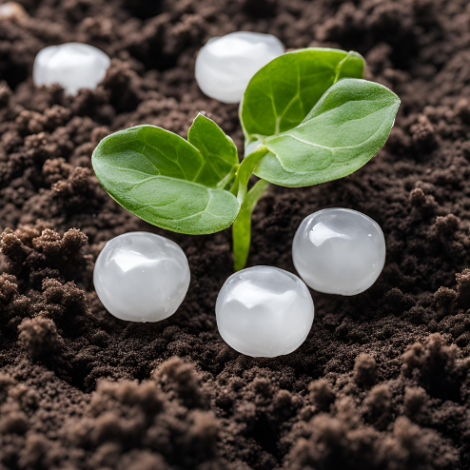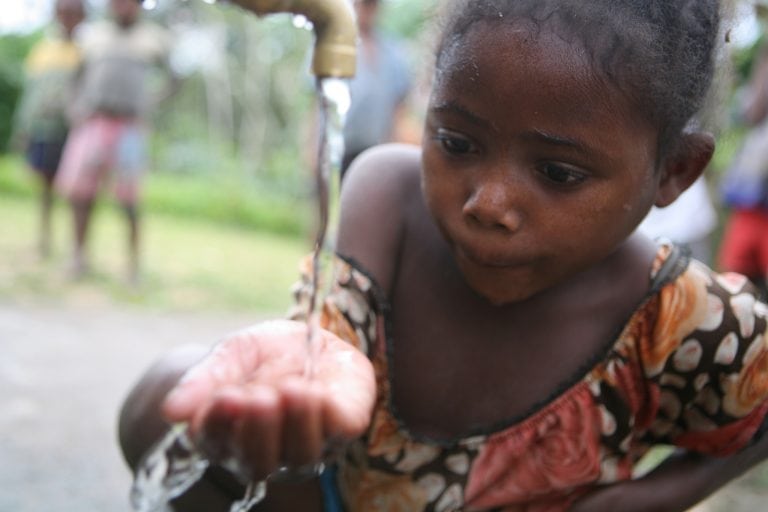Hydrogels are a real-world irrigation solution for farms that happen to double as a vehicle for teaching statistics to undergraduate engineering students. Students in engineering for statistics courses often struggle to understand abstract statistical concepts. They tend to lose interest in the course when they do not see the practical relevance of concepts in real life, or how statistical concepts connect to their interests in engineering. In response, Dr. Elena Rosca, one of this article’s co-authors and the Statistics for Engineers course lecturer at Ashesi University in Berekuso, Ghana, introduced a practical research project on hydrogels in agriculture as an alternative to irrigation.
During the January to May 2023 semester, we carried out hydrogel research as part of a project-based learning experience in our statistics course. Ashesi supports the initiative, and it was inspired by the university’s strong emphasis on critical thinking skill development, creative problem solving, communication skills, leadership and teamwork skills, as well as the integration of climate change and sustainability education in every Ashesi syllabus. The project allowed engineering students to undertake real-life research, and become aware of sustainability issues such as the impact of climate change on agriculture.
When we incorporate sustainable thinking into engineering curricula, we can help students realize their role as sustainability change-makers. Students can become more action-oriented towards sustainability during their engineering education and beyond. They may also be motivated to apply sustainable development practices in their chosen careers.
Teaching Statistics through Project-based Learning
Hydrogels in Agriculture as an Alternative to Irrigation
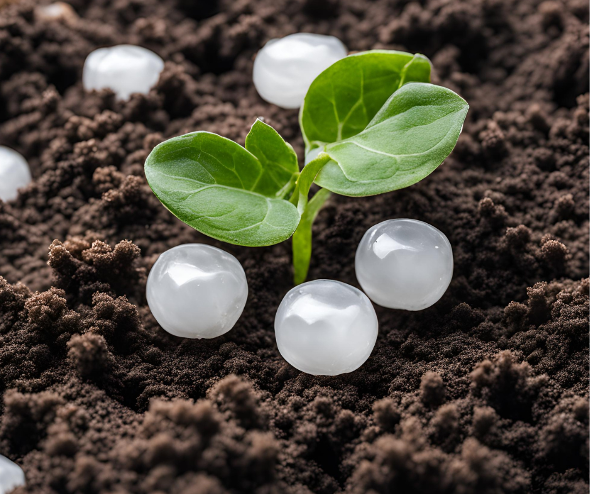
This generative AI image portrays hydrogels placed in the soil to improve moisture and enhance plant growth.
What are hydrogels, and what are their prospects in agriculture?
Hydrogels are polymers that can absorb water and swell when they come into contact with water through rainfall or watering. Climate change affects rainfall and severely impacts irrigation in agriculture. Hydrogels offer an innovative solution to combat water scarcity on farmlands, especially in areas with persistent drought conditions. They retain water and release it into the soil to improve moisture content. They are formed by crosslinking polymers, which can be natural or synthetic. The use of hydrogels in farms contributes to a reduction in irrigation frequency. Additionally, hydrogels can be used in seed coating and serve as nutrient and pesticide carriers, as mentioned in a review article on the prospects of hydrogels in agriculture for enhancing crop and water productivity under water deficit conditions.
Effective hydrgogels have properties such as a high swelling rate, slow release of water, biodegradability, and the ability to withstand mechanical pressure from the soil and surrounding water, according to a study in 2019 on sustainable irrigation through the application of hydrogel. The same study found that soils with hydrogels have improved water retention in arid and semi-arid areas. Hydrogels can also enhance the growth of plants when they are applied to coat seeds.
What did the hydrogel research project entail?
The research project in our statistics course promoted collaboration among students as they worked in teams of three or four to complete this semester-long project. The project served as the final assessment for the course.
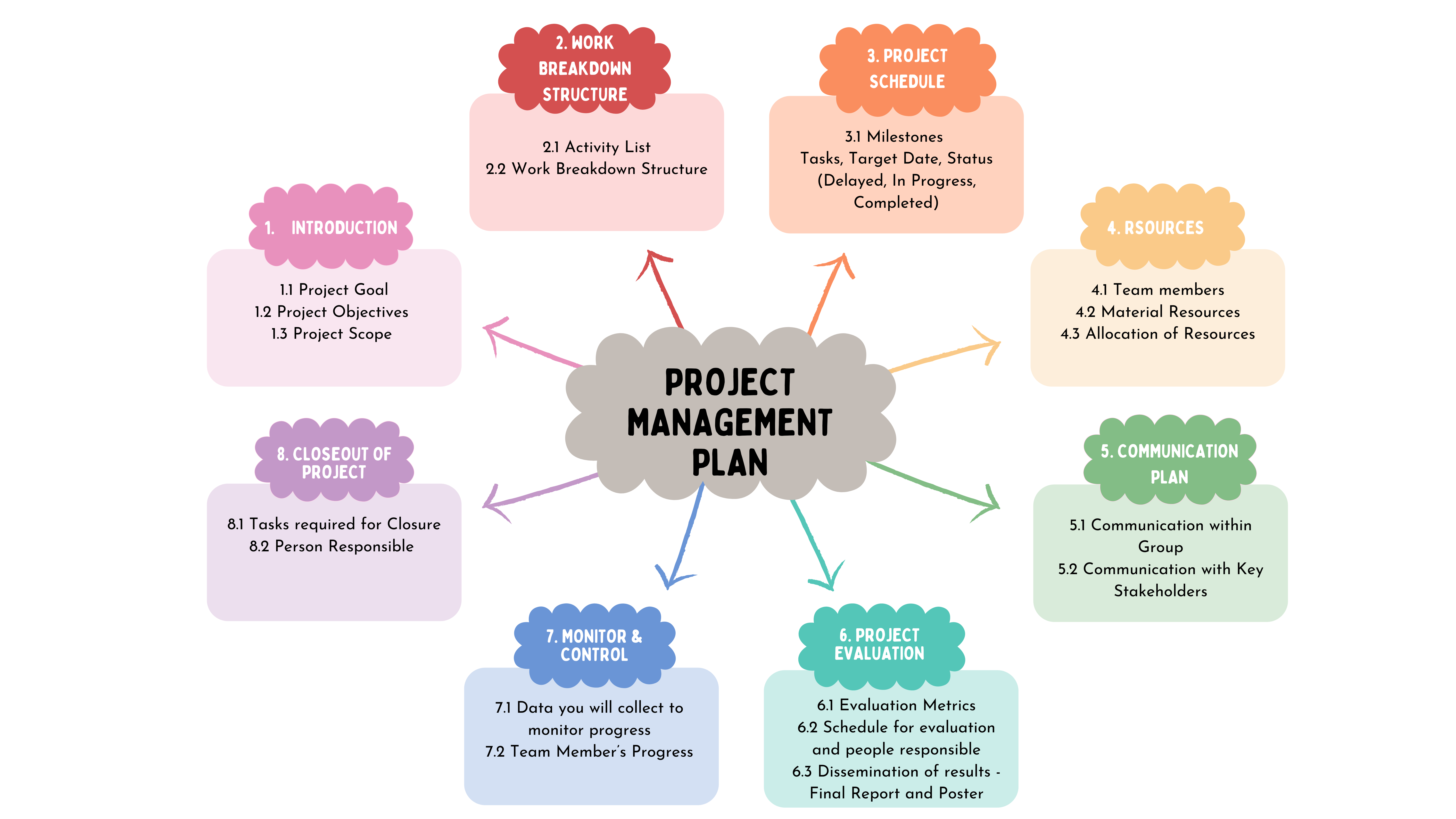
Components of the Project Plan. Image: The authors
Firstly, each team formulated their project topic and research questions based on the general theme “hydrogels in agriculture as an alternative for irrigation”. Next, students completed a project management plan, which was reviewed by the course instructors to ensure their project was within scope and properly planned. Afterward, students proceeded to develop an experimental protocol.
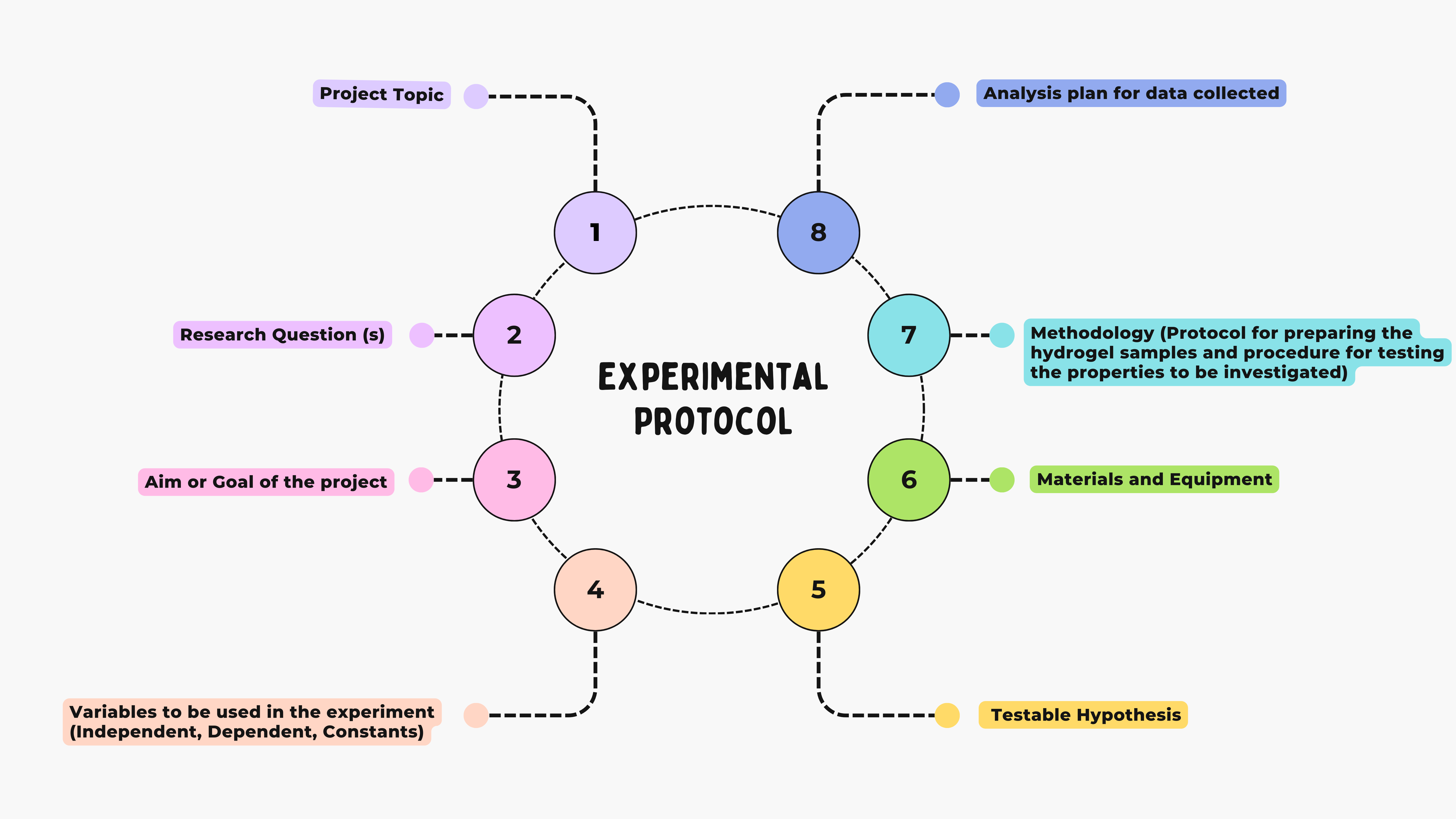
Components of the Experimental Protocol. Image: The authors
Students conducted a series of experiments in order to characterize the properties of synthetic and natural hydrogels for water delivery in irrigation applications. Requirements for the experiment included investigating at least two different hydrogel properties suitable for irrigation applications. Using the data collected, students performed a comprehensive statistical analysis to conclude which hydrogel formulation is best suited for irrigation.
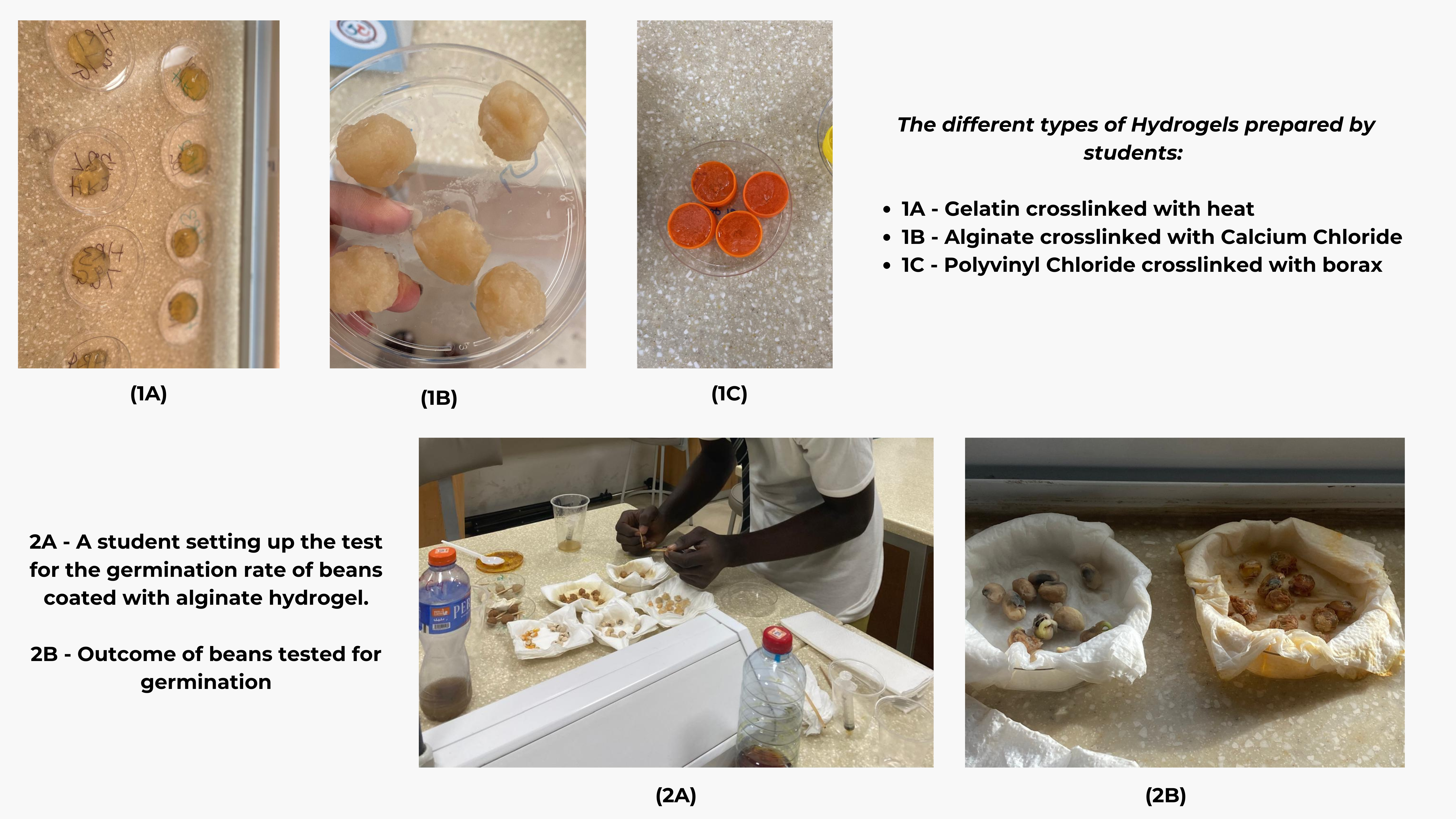
Students took these photos during their engagement with the research project. Photos courtesy of the authors
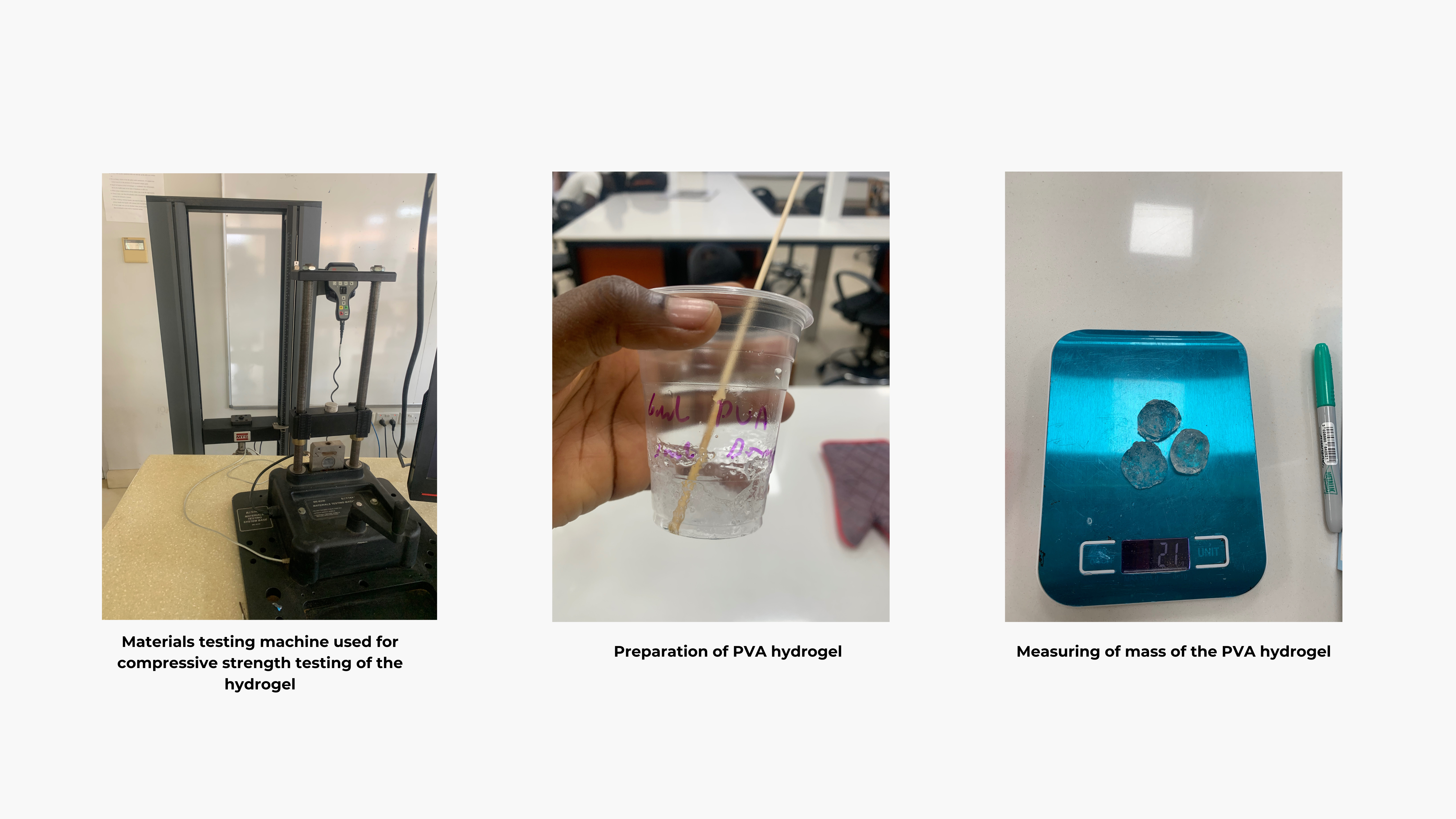
Photos courtesy of the authors
Poster Presentation
Students disseminated their findings by submitting a comprehensive report and presenting a scientific poster of their work. The poster presentation allowed students to view other groups’ research and interact with different teams, comparing and contrasting their approaches and findings and posing critical questions to each other.
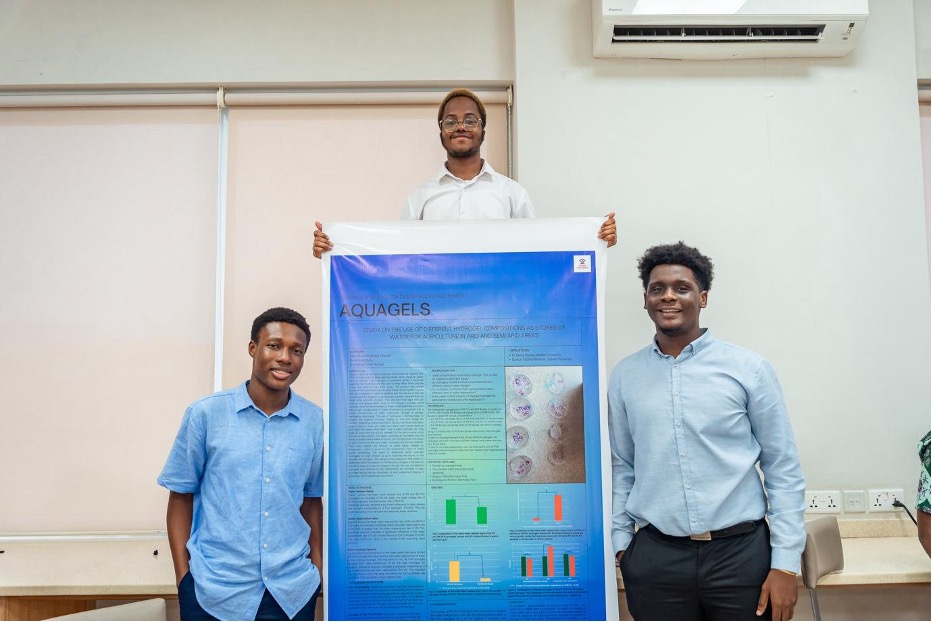
A three-member team (Emmanuel, Darryl, and Sean) show a poster of their research. Photo by Cyril during poster presentation day, courtesy of the authors
The impact of hydrogel research on our statistics for engineering course
In our initial attempt to introduce this teaching approach, most of the students in the course were not excited about the prospect of investigating hydrogels. However, a few students were open to trying something new. As captured in some of the comments from students, this real-life application helped them grasp abstract concepts when they collected their data, analyzed it, and made conclusions based on evidence.
In addition, it helped students develop their critical thinking and problem-solving skills. Students were challenged to ask the right questions and analyze and evaluate information to draw valid conclusions. We observed how some teams exhibited resilience when their experimental protocol did not work out as expected during implementation. Some students mentioned in the comments that this research project stimulated their interest in exploring the field of research work. It also equipped them with relevant skills such as effective communication and planning, collaborative decision-making, and dealing with team dynamics. These are all essential skills needed for their future engineering careers.
Some students mentioned how they felt about the usefulness of hydrogels for sustainable agriculture as a teaching tool in their statistics course. Find some of their comments below:
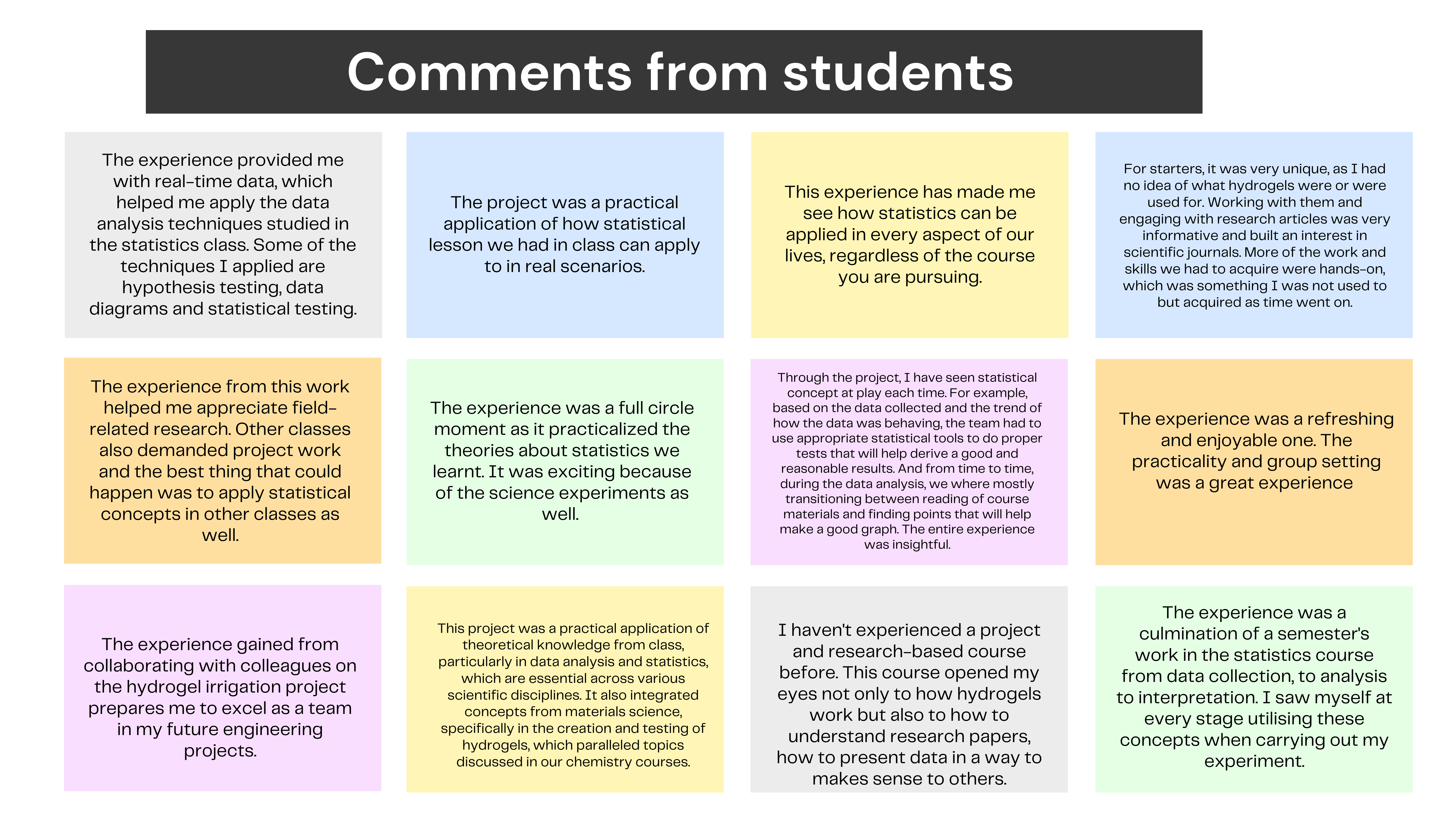
These are some of the students’ reactions to using a practical application in the statistics course. Image courtesy of the authors
Students also shared some of the lessons learned from the program.
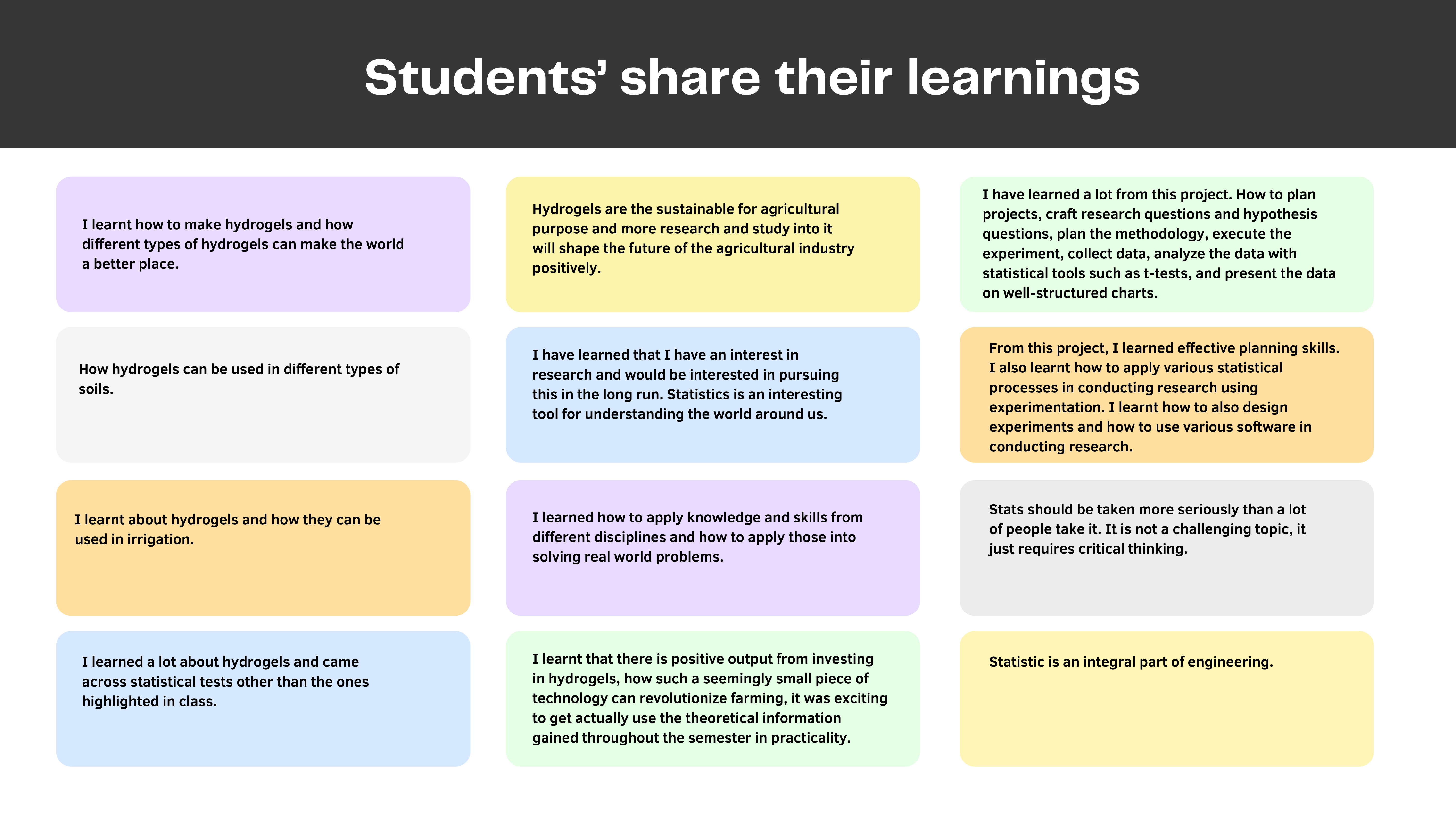
Image courtesy of the authors
It was great to see that even after completing the statistics course, some students continued to study hydrogels.
Two students worked on a project to develop a mathematical model using ordinary differential equations to study hydrogels for their final oral assessment in the Differential Equations course the following semester. A student from the Class of 2025 developed a mathematical model to analyze water absorption and release patterns to understand the behavior of hydrogels. Another student from the Class of 2026 focused on studying the impact of hydrogels on soil moisture content by quantifying how introducing hydrogels into soil affects water retention capabilities.
The idea for this course comes from a toolkit by AdvanceHE. For details and guidance on integrating sustainable development with the curriculum, please see AdvanceHE’s Education for Sustainable Development.
About the Authors
Dr. Elena Rosca heads the Department of Engineering at Ashesi University in Berekuso, Ghana. Previously, she taught at the University of Hull and has worked at Johns Hopkins University and King’s College London. She is an alumnus of Arizona State University, where she completed Bachelor’s degrees in Mathematics and Microbiology, a Master’s in Microbiology, and a PhD in Bioengineering.
As a teacher, she is interested in challenging students effectively to understand fundamental engineering concepts and using them to develop unique and novel solutions to problems. Using current challenges along with research and engineering principles as motivators, She aims to inspire their curiosity and desire to approach even the most daunting problems. She is also passionate about research, and she believes that by helping students combine research and learning, they can reach their best potential. She hopes that through her teaching and relationship with the students, she will be able to inspire them to become leaders who will transform their continent.
Eunice Tachie-Menson is an Engineering for Change Fellow and a Research Intern – Scholarship of Teaching & Learning (SoTL) Project at Ashesi University. She previously served as a teaching assistant at Ashesi University, supporting Statistics for Engineers & Differential Equations courses. She is passionate about mathematics education and its intersection with engineering for sustainable development. Her core principles revolve around engaging in impactful initiatives that improve the world. In the classroom, she loves to help students see the relevance of mathematics and connect it to the world around them. She also contributes to teaching activities that improve students’ conceptions of engineering for sustainable development.
